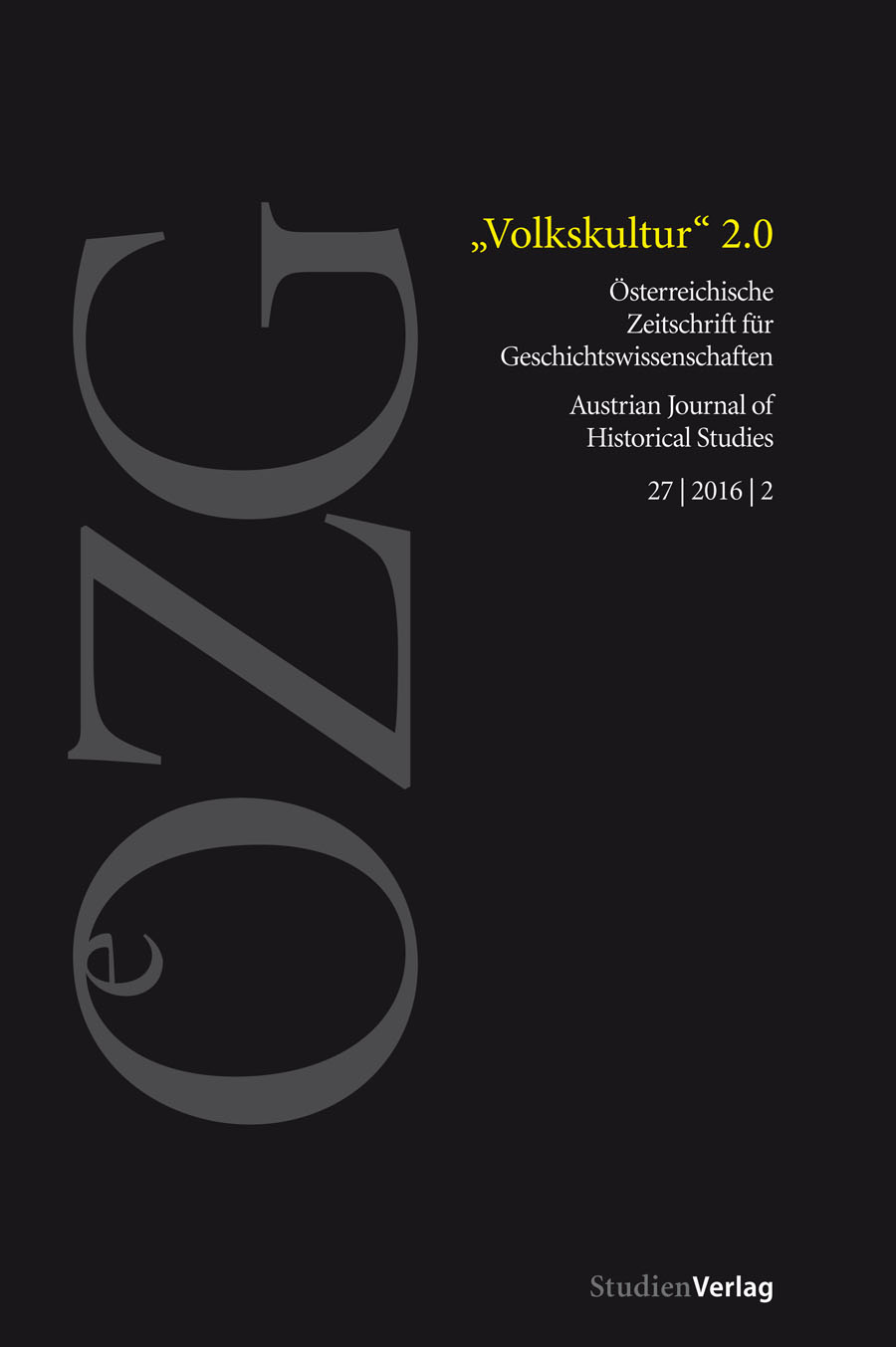‘Volkskultur’ between Science and Society
A Critical History of the Concept
DOI:
https://doi.org/10.25365/oezg-2016-27-2-2Keywords:
popular culture, folk culture, folklorism, history of knowledge, disciplinary history, theory of practiceAbstract
This paper analyses the concept of ‘Volkskultur’ (folk culture) as an invention of the 20th century, using perspectives from social history and the history of knowledge. It is demonstrated how ‘Volkskultur’ was constituted in the space between the poles of science, cultural policy, public discourse and popular practice, and how the concept was used as a symbolic resource. First, the disciplinary discourse of German-speaking European Ethnology (which grew out of ‘Volkskunde’) is explored in it’s interdisciplinary relations and it’s historical development. Second, conceptual proposals for the empirical study of the eld of ‘Volkskultur’ in the present are presented. Concluding, this article argues for a praxeological approach on the actors, social usages and political implications of ‘Volkskultur’.


